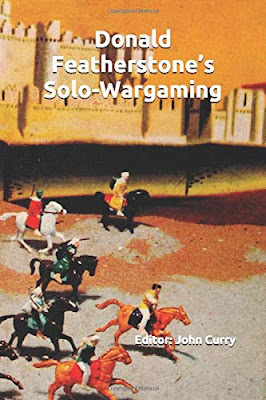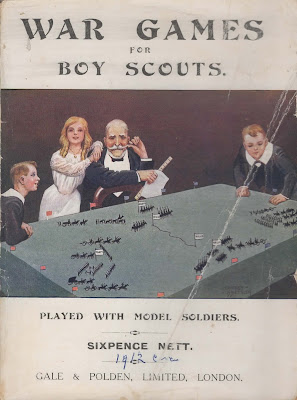Personal Thoughts on Regular Queries..
On the various Facebook Groups to which I sometimes contribute (Trans. Upon which I occasionally inflict my maunderings) there are questions which come up regularly...
Being the kind of bod I am - and given some of the mixed bag of responses to these questions which I see from others - I often chip in with my tenpenn'orth and try to be realistic and (I hope) helpful.
However, I find myself repeating the same advice anything from some two to five times a month, sometimes a couple of times a week (I guess folks don't look at past posts on the Groups they've joined before posting themselves.. Or are jinxed by FB's occasionally bizarre comment visibility thang. Who knows..?*) and so, I thought I'd pen some answers here; both to save my time (I can just post a link to this in future) and also to help concentrate my own wayward thoughts on the subject(s).
So here are some (rambling?) comments from an old stager......
(*Actually, thinking about it, I've noticed this phenomenon of asking a question before researching oneself, and thus forming one's own thoughts/opinion, increasing on Social Media generally. Maybe it's a generational thing..?
My first instinct is to research myself, then ask to fill any gaps I have drawn a blank on. That's how I was taught to learn/taught myself "back in the day", and I guess old habits die hard. Given that almost all the queries I have, or see asked, can be answered in about ten minutes Googling nowadays - as opposed to the old days of half an hour's walk to the Library before spending hours finding and copying from the right book, before walking back - I find this phenomenon a tad odd.. Research is so very, very easy now.. And I enjoy it. But hey, ho.. We're all different and none of us are right....)
OK... So, to the questions.
Regular Question 1) I am new to Wargaming and don't know where to start. Where do I start? What should I buy?
Oh, boy...
I guess I've been "wargaming" (i.e. using dice etc. as part of playing with toy soldiers) since the 60s (thanks to Terry Wise's "Introduction to Battle gaming") so just grew into it. Thus the idea of starting totally from scratch as an adult/teen is outside of my experience. My gaming just evolved (and ebbed and flowed) over the decades) - mainly from historical periods or incidents of interest or stories garnered from reading, TV and cinema. Hence the idea of starting with a blank canvas is actually quite hard for me to imagine. However, my usual response to this question is something along the lines of:
a) What period/aspect/genre are you interested in (i.e. what has sparked the sudden interest?) and "What do you want out of this hobby?".
If so, this is a great (and cheap) way to start; you'll only need a few figures and something to play on, some rules you like, and away you go.
Or do you want to do skirmishes (say 20 -80 fellows a side on the table and operating with units of bods)?
If so, you'll need more figures (and therefore likely space to deploy and store them) and likely some terrain (ditto). This where scale of figures AND ground scale may start to be factors (how much does a measurement on the table represent and how many men does each figure represent. This may be determined by the Rule Set you chose) - not to mention cost. Remember, the larger the figures, the more space you'll need.
My advice is always start small, simple and work up; it's no good spending heaps of cash on load of figures and terrain and expensive rule sets only to find you don't actually get a kick out of playing......
So....
1/A) Figures for First-Timers:
Take a gander at different posts on the blog here or the Facebook Solo Wargaming With Miniatures and other fora and you will see small skirmishes written up using 15mm, 20mm/1/72 and 28mm.
2) Unit Level Skirmishes: Plastic, plastic, plastic.... At 1/72*..
(*AKA 20mm, AKA 22mm AKA "small 25mm", AKA 1/76. Seriously, don't get involved in talking about scales yet. Life's too short.)
Why plastic 1/72? Cost and space.You could go 15mm, but it'll cost more.
Try 28mm if you have space and the budget.. But for me they are just too big - or rather the terrain which goes with them takes up too much space in my Play Room, and British weather makes the garden out of bounds - once you get to forty or more figures..
I know.. Self-defeating isn't it...? But there we are...
However, not only do most plastic manufacturers (and some traders) show what their boxes contain on their websites, you also have access to the amazing Plastic Soldier Review.
http://www.plasticsoldierreview.com
You really do need to get used to dipping into this site if you're going plastic 1/72. It is genuinely invaluable...
3) Large Scale Actions: See above. Plastic 1/72. Maybe 15mm if that floats your boat.
Personally I go 6mm for large actions (you can see examples on the Blog here) because you can both get a lot of lads on the table PLUS still have a lot of space free for manoeuvre (including running away).
You could go smaller still (2mm), but I've not gone that route..
There are examples of 5mm-6mm-1/300, 15mm, 20mm-1/72 and 28mm figures in use on the Blog here..
1/B) Rules for First-Timers:
1) Don't pay for a rule set you then find you don't like them. Find a simple, free rule-set (NOT necessarily Solo to start with) online for the genre and level which best floats your boat. Loads out there with a few minutes Googling. Seriously, you do NOT want to burden yourself with complexity. Simplest is best. Otherwise you'll just put yourself off and end up with a shelf-full of unused (expensive) rule books.. Find the style of rules you like by playing.
https://freewargamesrules.fandom.com/wiki/Freewargamesrules_Wiki
2) Take a trawl through the Posts, linked Blogs and Files Section on the Facebook solo page. Loads of ideas for Solo tweaking any rule set. Trawl the multiple videos out there re the various popular rules systems to get a feel for what you like/don't like re. systems. Personally, for me, the more imponderables and unknowns the better (more like real life) but this is Solo. Your Game. Your Rules....
3) If you MUST pay for rules and are the kind of chap who likes to place yourself in someone else's straitjacket, which is fine, but not MY bag, then look at rule review videos and Blogs before you buy. Totally avoid buying ANY rule set costing you more than a fiver (or running into more than 5 or so pages) until you've felt your way in (see above). Go for PDFs before printed where that is an option. Too many unused, expensive rule sets on the shelves make you cross after a while, as well as taking up precious toy space...
4) Remember that ANY rule set can be "solo-ised". Loads of techniques and methods discussed on the Solo Wargaming with Miniatures group/in the Files Section/various Blogs.
5) Remember that this is Solo... Your Game. Your Rules. Adapt, tweak and cannibalise...
Simple answer; the ones you already play with intuitively and are happy with. Solo-ise them. There is no point in abandoning a good rule set which work for you or to go learning a whole new set of rule conventions for the basics of movement, fighting, moral, basing (if you must), organisation etc. etc. just to get a solo game.
When I come across a really good solo-play idea (or even two-player technique which can be adapted) in a new rule set I nick the idea/s - and add it/them to my House Rules. I never sit down and learn a new rule set that tells me how to suck eggs in a slightly different way just to achieve the same thing these days. Life is too short......
Which leads into:
Regular Question 3) Can You Play (insert popular rule set here) Solo ?
All rule sets can be played Solo, but it depends what YOU want from a game.
If you want to simply "play chess" against yourself, being fair to both sides, and if you are genuinely able to put your head into two different places during a game then this can be fine. It can work, and I've done this a lot.. However, for me this is a limiting and sometimes unsatisfying method because one generally tends to only see what one sees oneself as potential moves. You CAN surprise yourself on occasion, but not often. Surprises, and tension, are thus reduced.
If you want to do the same but introduce imponderables and randomness for both sides to make life more interesting there are simple ideas and dice and/or card-based systems covered in posts here, in the Files Section of the Solo Wargaming With Figures Facebook Group and in various blogs scattered across the Web. Once again, Mr, Google is your friend and five to ten minutes searching will turn something up....
Play with the systems, add imponderables, reaction tests, make up your own tables (or nick from elsewhere), dice and even cards**.
Don't be afraid of ad hoc, mid game, back of the fag packet decision tables. These can make great games and be great fun.
(**Making your own cards is simple and fun. You can buy packs of "blank on one side" playing cards, or use blank business cards or blank beer mats with a simple home-made stencil on the back (if you must). If you can't draw then there are multitudinous images online - print off labels and stick them on the cards. Or you can get them printed on sites which will do that for you. Loads of examples of home-made/designed cards in use on the Blog here.)
Limit the knowledge you, the commander, has (Yes; OK, you CAN sometimes see everything, but use your "commander figure" as it it were you. You "can't see" what he can't, OK?).
Use the communications difficulties of the period (there are ALWAYS communication difficulties...) to make life interesting - and challenging - for you.
Most important (to me) is the narrative element. A fight in a vacuum has no interest for me; I have chess for that kind of thing. I need a backstory. Why are the guys there. Why are they fighting? What do they hope to achieve?
That's where an imagination, films and books for inspiration (you will see examples on the Blog here) or campaigns help. For me the story aspect keeps me interested and inspires me to play - and there is nothing more boring for me than just setting the guys out without having an idea why they are there. Campaigns (again, examples on the Blog) do all that work for you.....
General Thoughts on Rules:
If you want someone to have done the work for you there ARE a variety of solo rules out there which you can pay for, and a scatter of free ones, but personally I've never found a bought system that totally floats my boat - plus it's more rules to learn - but looking at rule playthrough videos or free rules are a good way at looking at different approaches and getting ideas. I'd always start with these first though....
However, for the record, I guess the fairest answer to "recommended" rules would be to say which rule sets have influenced me most (Trans. which I have stolen from most..).
For ideas and simple rules works by 1960s and 1970s Terry Wise and Don Featherstone..
For little skirmishes; ideas from Space Hulk (don't laugh), Advanced Heroquest (ditto) and the old "Three Card Trick" duelling (Gerard Du Gre via Featherstone) have stood me in good stead; with some ideas from "En Guard" bringing me up to the 21st century.
For big (unit level) skirmishes: An old Military Modelling/Wargame magazine article several decades ago (Ted Brown) with some basic black powder (IM) rules which themselves were a forerunner in some ways to what got me back into the hobby again a few years back; my "restart" rules being the various Two Fat Lardies' offerings "Sharpe Practice" and Dux Britanniarum. These got me back into the hobby and although not designed for Solo already have a deal of randomisation, which make them a good starting point.
"The Men Who Would Be Kings" also have some interesting solo ideas ("Mr. Baggage").
I toyed with DBA for large battles a while ago, but it felt too formulaic, so my large battle rules are Home-bashed variants on the above.
For Sci-Fi I have my simple home-bashed rules, but I recently looked at GreyWizardGaming's (excellent) video walkthrough of 5 Parsecs latest edition - and the skirmish rules seem to do just what I would want from that kind of game (and are very like my House Rules)....
What makes a set for me are those with room for a narrative and quick, intuitive, simple mechanics (how far, does it hit, how much does it damage, how does that matter) true to period with minimal tables (and where those that are necessary become imprinted quickly).
Summary:
The above has resulted in sets of House Rules (largely solo) which reflect the (very real) Command & Control issues, personality issues, mob/crowd behaviour - and above all Chance - inherent in battle, and which try to reflect the fact that most battles are "Lost", rather than "Won".
Therefore in my large fights (skirmishes are a different animal) the Active Player's role is mainly personality and crisis management, coupled with juggling the communication difficulties which go with the period.
For me overcoming the real-life imponderables which affect a friendly army are as much (sometimes more) important to the fun of the game than "fighting" the "enemy"... For me there is little to beat the (post-battle at least) "enjoyment" of losing to a randomised AI because of your own failure to manage your own force effectively, or of winning - despite your own failures - due to the unauthorised actions of a subordinate..
It's horses for courses, of course, and each to their own.
So there we are. A very personal (idiosyncratic?) wander through those regular questions. Hope it helps.
Take a trawl though the Blog for ideas. Nick, tweak and cannibalise. If you have any questions please ask...
Oh, and if you have a rule set or idea which you want to solo-ise but are stuck, please don't hesitate to throw me a query via the comments. I'm more than happy to get the little grey cells working on a problem...
Happy gaming...

















No comments:
Post a Comment